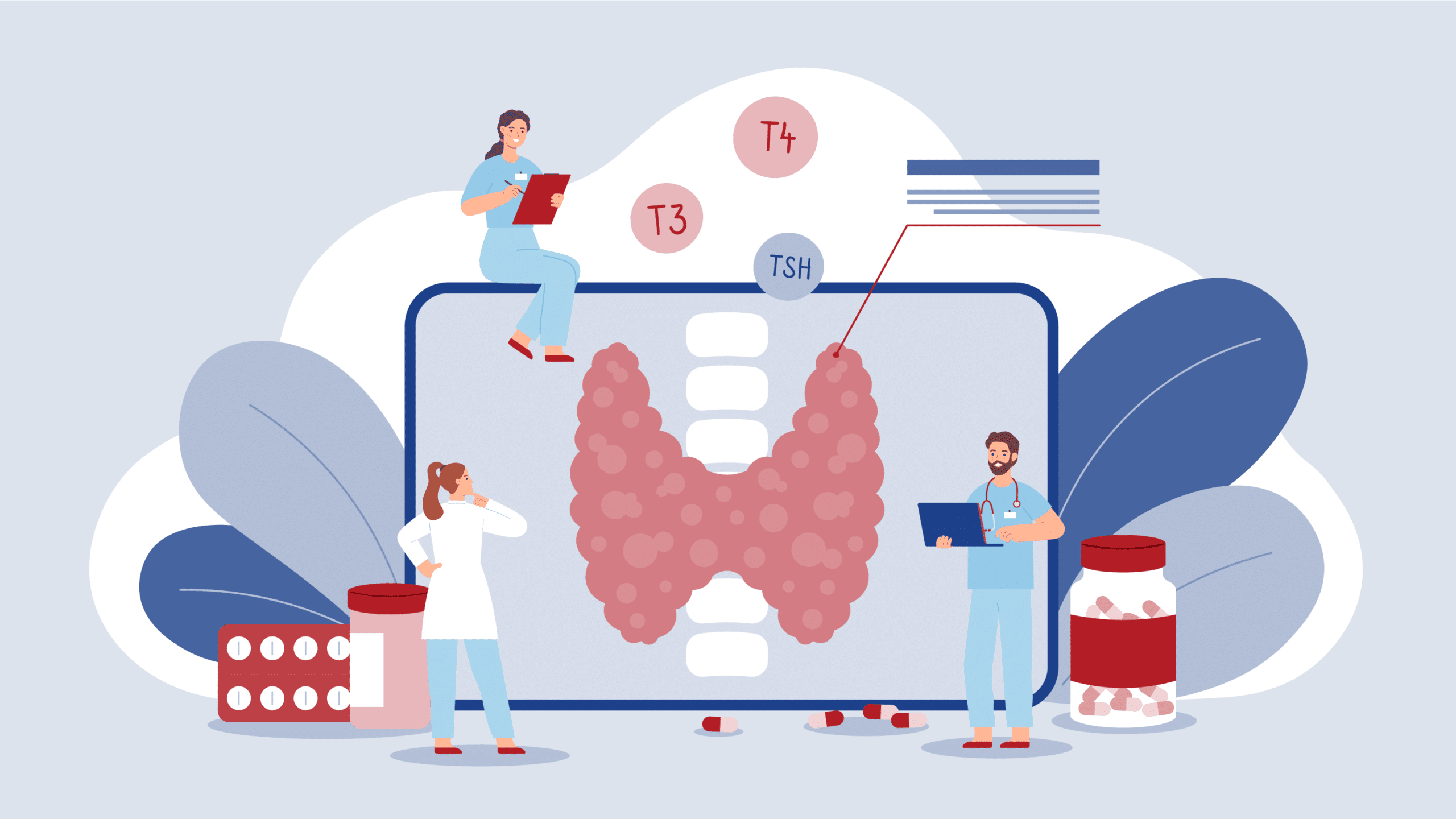
The thyroid gland is important for the body’s hormonal regulation. MainStreet Family Care is here to inform you on all aspects of the thyroid, including functions, diseases and dysfunctions, treatments, and prevention methods.
Thyroid Function and Location
The thyroid is a butterfly-shaped gland located in the throat. The pituitary gland is responsible for enacting thyroid function by producing TSH (thyroid stimulating hormone), which prompts the thyroid to produce triiodothyronine (T3) and thyroxine (T4). These hormones control a plethora of bodily functions like heart rate, blood pressure, body temperature, and metabolism.
What Diseases Affect the Thyroid?
Just like other parts of the body, the thyroid can experience diseases and dysfunction. Thyroid issues can wreak havoc on your entire body due to the important functions the thyroid enacts. Common thyroid diseases include:
- Hypothyroidism (underactive thyroid)
- Hyperthyroidism (overactive thyroid)
- Hashimoto’s Thyroiditis
- Grave’s disease (a precursor to hyperthyroidism)
Each of these diseases are known as autoimmune, meaning the body attacks the thyroid and causes these issues.
Thyroid Dysfunction
Besides disease, there are other issues that can cause dysfunction to the thyroid. Two of the most common dysfunctions include an enlarged thyroid and thyroid nodules.
An enlarged thyroid can cause issues such as an increase or decrease in hormone production. Other times, this enlargement causes no issues.
Thyroid nodules may also be associated with an enlarged thyroid, but not always. These nodules can be solid or filled with liquid, and are generally not dangerous and cause no symptoms. It is rare that they are cancerous. For nodules that do cause symptoms, they are usually associated with an overactive thyroid.
Both of these dysfunctions require a medical diagnosis.
How Are Thyroid Issues Diagnosed?
While thyroid diseases and dysfunctions may cause symptoms, it may be difficult to pinpoint which disease you may be facing. To be diagnosed with a thyroid issue, you must complete lab tests that reveal information about your hormone levels.
MainStreet Family Care offers diagnosis and treatment of thyroid problems in our primary care services.
Treating Thyroid Problems
After receiving a diagnosis of a thyroid issue, your primary care provider will walk you through a treatment plan depending on the condition you are facing.
Commonly used treatment methods for thyroid disease and dysfunction include:
- Hormone therapy
- Beta blockers
- Thyroidectomy
- Radioiodine therapy
Keeping a Healthy Thyroid
While there are not many prevention methods to completely avoid thyroid issues, there are a few ways you can reduce your risk factors of facing one of these conditions. To keep your thyroid healthy:
- Eat a balanced diet that has limited processed and sugary foods.
- Exercise 3 to 5 times a week.
- Engage in stress relieving activities.
- Keep a healthy body weight
Unsure of what steps to take first? Talk with your primary care provider!
Turn To MainStreet Family Care
MainStreet can help you with all of your thyroid issues as well as keeping your thyroid healthy through our primary care services. To visit for primary care, sign up online and make your first appointment. We can’t wait to see you!






